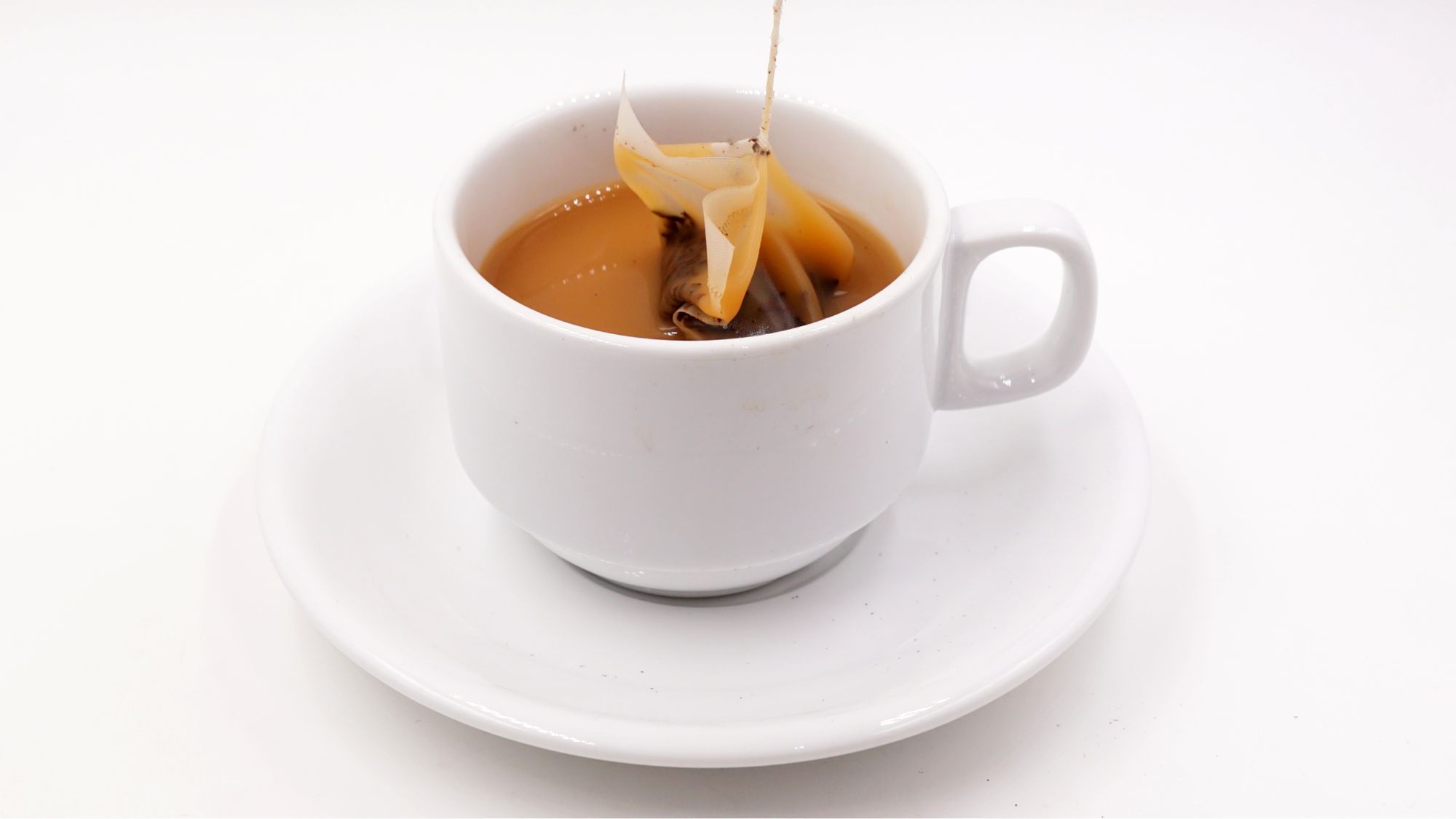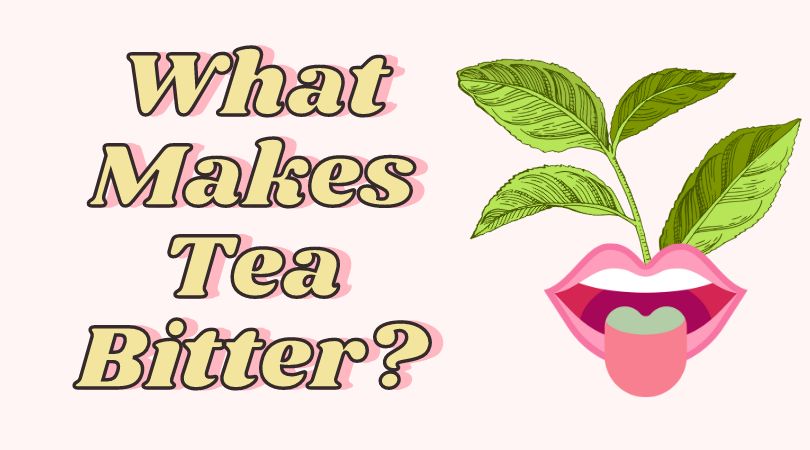What makes tea bitter? All tea (Camellia Sinensis that is) naturally contains substances that can produce bitterness in the brewed cup. When people say that tea is bitter, what they are often referring to is astringency. The best way to tell the difference between the two is that bitterness is a taste while astringency is a feeling. In this post, I’ll be sharing what makes tea bitter as well as some tips to improve your next cup of tea.
Caffeine
Caffeine in its pure state is an extremely bitter substance. Contrary to popular belief, the type of tea really doesn’t determine how much caffeine there is in the final product. There are a number of deciding factors including how much rainfall the tea plants received and the quality of the soil in which it was grown. The level of caffeine that actually ends up in your cup also varies widely. Black tea bags that are designed to be served with milk and sugar tend to be higher in caffeine. Matcha green tea contains more caffeine per serving in part because the whole leaf is ingested rather than steeped.
Catechins and Polyphenols
Catechins and other polyphenols (including tannins) are also major contributors to bitterness in tea. That’s right, antioxidants! Flavanols, known as tannins, are converted to thearubigins during enzymatic oxidation in black tea. They are present in other tea types but in lower numbers. Higher amounts of tannins can cause the tea to be perceived as bitter. Tannins have no relation to tannic acid so don’t worry, tea will not turn your insides into leather. However, there is some evidence that they can interfere with the absorption of nutrients so drinking tea with meals isn’t recommended.

How to Make Your Tea Less Bitter
Now you might ask yourself, how do you prevent your tea from tasting bitter? There are a few factors that are most likely the culprit. Here are some steps you can try to troubleshoot your next cuppa.
Reduce the amount of Tea that you are using.
Using too much tea can definitely make it taste bitter. The general rule is 1 teabag for every 8oz of water. The equivalent of that for loose-leaf tea is 1 teaspoon. That being said, teaspoons are not an exact unit of measure because tea leaves come in a variety of shapes and sizes. You could be using too much tea without realizing it. It can be helpful to weigh your leaves instead. Use 2-3g of loose leaf for each cup of water. When it comes to gongfu, a good rule of thumb is 1g of tea for every 10-20 ml of water.
Lower your water temperature
It often surprises people when I tell them that certain types of tea require different water temperatures. This is especially important when it comes to green tea. The recommendations given by the company you purchased your tea from are a good starting point, but you should also feel free to experiment and adjust to your own personal taste. A lower water temperature will usually result in less bitterness. Adjusting by as little as 10 degrees can make a big difference. If you’re very sensitive to bitterness, cold brewing can be a good way to go.

Reduce your steep time
Brewing your tea for too long will also cause bitterness. There is a common misconception that brewing for longer will give more flavor, but that is not really how it works. The components in tea all have different extraction rates. Brewing for longer will draw out more caffeine and catechins. It does not necessarily give more of the aromatic compounds that give tea its flavor. If you’re brewing Western-style, most teas should be steeped for 3-5 minutes. For gongfu, infusions start at about 15-30 seconds.
Keep your tea whole
Teabags are designed to give color and flavor quickly. If you cut one open you’ll see that the leaves are broken into very small pieces. The small particles have an increased surface area that comes into contact with the water. The same can be said of CTC-style loose leaves that get crushed or broken. Loose-leaf tea extracts more slowly, but will usually be able to give multiple flavorful infusions. If you’re finishing up the remnants at the bottom of a tin, I recommend reducing your steeping time accordingly.
Buy better tea!
Last but not least, it’s very possible that the tea you are trying to salvage just isn’t very good. Nothing will fix old, cheap, or low-quality tea leaves. I’m not saying that to be a tea snob. I’m a firm believer that everyone should drink whatever tea they like in whatever way they like it. But if you do not enjoy what you are drinking after trying all of the previous recommendations, it may be time to consider stepping up your tea game.
This post was originally published on February 1st, 2016. It was revised and updated on November 27th, 2023.
Help Support This Site

Support my work in tea by joining my Patreon community. For $2-$5 a month you’ll receive access to exclusive behind-the-scenes content, my private Discord server, surprise quarterly packages, and more!

I always thought tea was bitter becuase of two things.
One: it was steeped too long, I do this to much sometimes.
Two: it’s the tea. Most teas are naturally bitter and some like it that way but many don’t like their teas bitter (Me!)
I enjoyed reading this post, I look forward to reading more on your site. I am learning so much 🙂